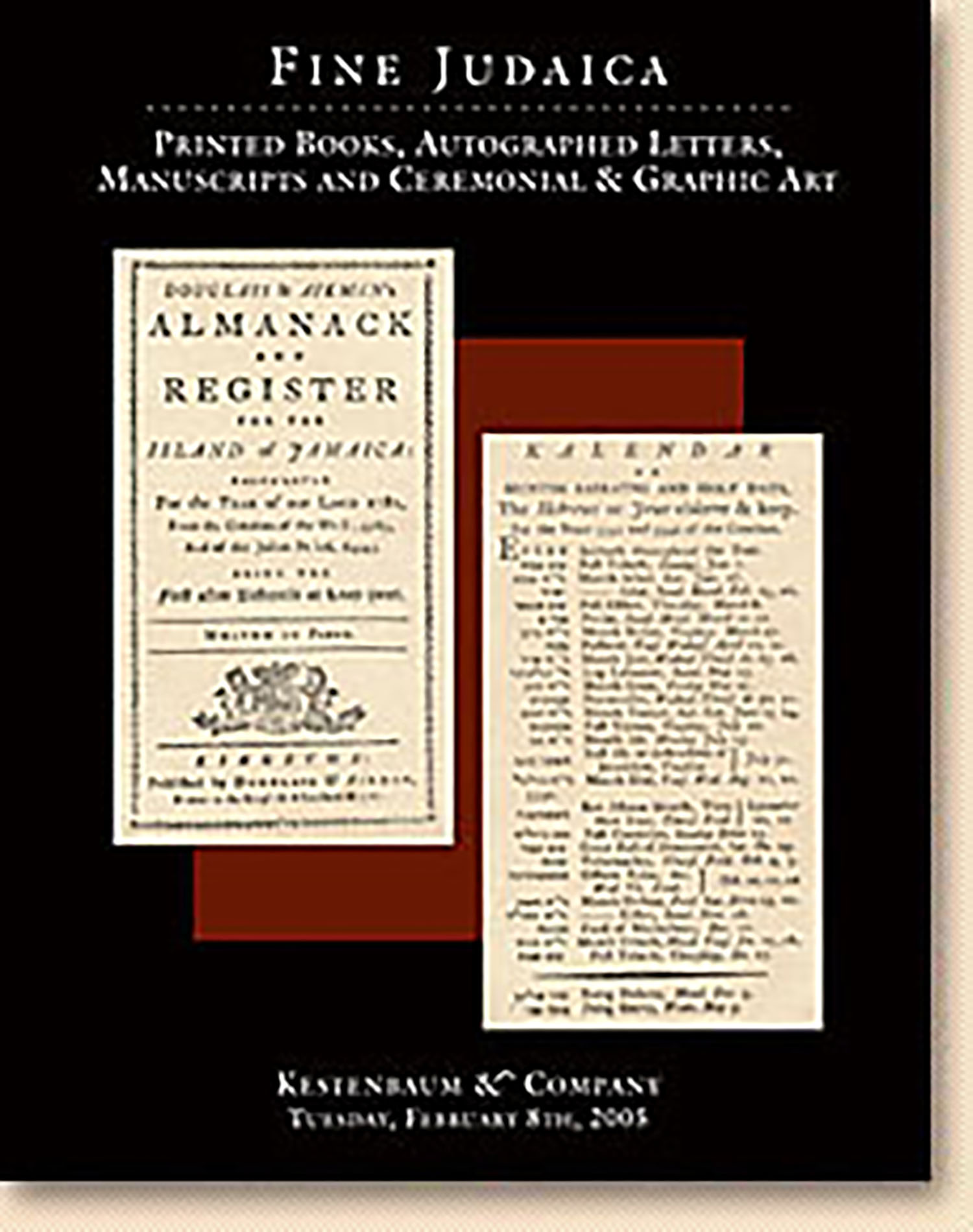Amaroth Tehoroth Be’Eser Yesodoth VeHakdamoth Yekaroth Megalei Amukoth Be’Eser Sephiroth. And: Likutei Hakdamoth Le’Chochmath HaKabbalah

AUCTION 27 |
Tuesday, February 08th,
2005 at 1:00
Fine Judaica: Printed Books, Autographed Letters, Manuscripts, Ceremonial & Graphic Art
Lot 223
ALKABETZ, SOLOMON (c.1505-1584).
Amaroth Tehoroth Be’Eser Yesodoth VeHakdamoth Yekaroth Megalei Amukoth Be’Eser Sephiroth. And: Likutei Hakdamoth Le’Chochmath HaKabbalah
Italy: Late16th - early 17th century (and certainly before 1620)
Est: $10,000 - $15,000
Althugh Solomon Alkabetz is popularly celebrated as the composer of the mystical hymn Lecha Dodi, his importance as a creative and original kabbalist is not as well known. The present manuscript is important in portraying Alkabetz’s infuence on Cordoverian kabbalah.
The manuscript Consists of:
Folio1b: A kabbalistic commentary by R. Menachem Azariah of Fano on the verse VaChamushim alu Benei Yisrael Mi'Eretz Mitzrayim (Exodus XIII, 18) - based upon a different manuscript of Alkabetz - Berith HaLevi [on the exodus of the Jews from Egypt and the Passover Hagadah, first published in Lemberg, 1863].
Since the scribe here appends to Menachem Azariah of Fano the blessing for those alive ("may God protect him"), this manuscript was certainly written earlier than 1620. The rabbi lived between 1548-1620
Folio 2a-26a: Perush Maamar ..MiSepher HaZohar Parshath Bereishith 49b MehaChacham HaShalem HaMekubal Ha'Eloki Shlomo ben Alkabetz. In this extremely comprehensive commentary Alabetz presents twenty-five difficulties in the interpretation of this Zoharic passage. He then construes ten fundamentals in order to solve the 25 questions, followed by the explanation of the Zohar itself.
The commentary was published as response to a query by Joseph Karo in the above mentioned Berith HaLevi (ff. 39b-43b). It would be useful therefore to compare the present manuscript with the published version for variances and alternate readings.
Folio 27a-70a: Likutei Hakdamoth LeChochmath HaKabbalah. A new system of Kabbalah propounded by Alkabetz and later adapted by his pupil and brother-in-law,Moshe Cordevero (the Rema"k). Cordevero’s theory of the Sefiroth was based upon Alkabetz and completely different from the earlier Kabbalah. This work contains many foundations which later appeared in Cordevero’s Pardes Rimonim.The interpretation of the Sefiroth, from the standpoint of an immanent dialectic acting upon the process of emanation, which is expounded by Cordevero, is already found in Alkabetz.
The manuscript concludes with a paragraph on the mystical significance of marital relations on Sabbath evening.
This section of the manuscript is unpublished. Appended with this lot is a descriptive summary by the Kabblistic scholar Yoseph Avivi of Jerusalem, who stresses the utility to compare this manuscript with Cordevero’s works in order to determine the extent of Alkabetz’s influence
